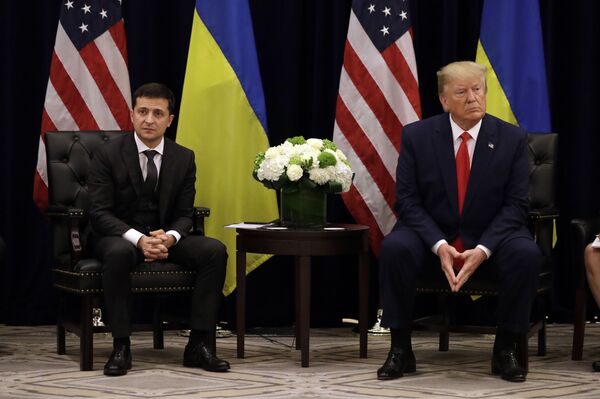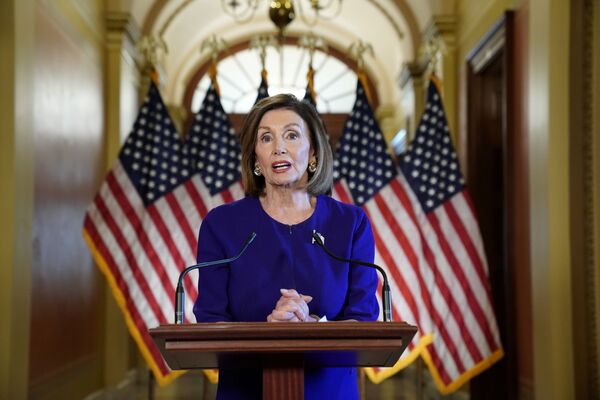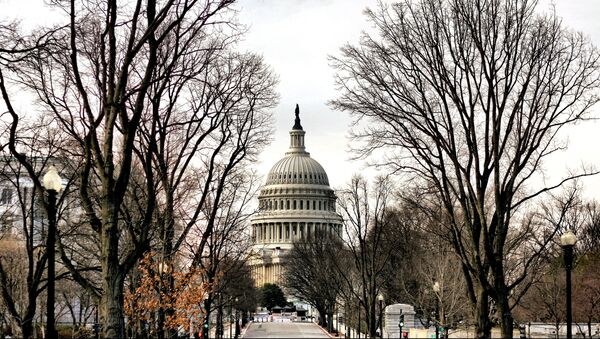Speaking before the House Intelligence Committee, Joseph Maguire, the Acting Director of National Intelligence, called the whistleblower's complain "credible and urgent" and believes that the whistleblower was operating in good faith. A redacted version of the complaint was released on Thursday,
"DNI Maguire was trying to walk a fine line by not offending the President. It was my impression that he was very uncomfortable testifying about this issue, and stated that it was his understanding that the whistleblower report did not have to be shared with Congress", Dr. Kyle Kopko, Associate Professor of Political Science and Director of Elizabethtown College's Honours and Pre-Law Programmes says.
On Tuesday, Democrats launched a formal impeachment inquiry into US President Donald Trump following allegations from an alleged intelligence community whistleblower that Trump had asked Ukrainian President Volodymyr Zelensky to investigate former vice-president and top-contending Democratic presidential candidate Joe Biden and his son Hunter during a phone conversation that took place in July.
In the now-released complaint, the whistleblower admitted that he had never actually heard the conversation first-hand: "I was not a direct witness to most of the events described. However, I found my colleagues' accounts of these events to be credible because, in almost all cases, multiple officials recounted fact patterns that were consistent with one another".
According to the complaint, Trump pressured the Ukrainian President to investigate Biden and his role in shutting down an investigation by Ukraine's chief prosecutor into Burisma Holdings gas company, that his son Hunter Biden was a paid board member of.

The phone conversation also took place just before Trump froze military aid to Ukraine, and though the US leader has, however, acknowledged that he blocked nearly $400 million in assistance, he denied pressuring the Ukrainian president into investigating Biden.
However, since then, the Pentagon has resumed sending aid to Ukraine and the freeze was lifted.
The US Justice Department declassified an unredacted transcript of the phone call on Wednesday. In it, Trump does ask Zelensky to look into the matter: "There's a lot of talk about Biden's son, that Biden stopped the prosecution and a lot of people want to find out about that, so whatever you can do with the attorney general, would be great".
To which the Ukrainian President assures Trump that the next prosecutor, which "will be '100 percent my person'" will do it.
Zelensky has denied that Trump pressured him to investigate Biden and son. After holding talks with Trump on the sidelines of the UN General Assembly, he told reporters that "nobody pushed me".
Kopko says that what will be critical now is the testimony of the whistleblower:
"It appears that he will appear before Congress once all security clearance issues are resolved. If the whistleblower provides evidence to corroborate their report, such as politically sensitive information being classified even though it has no national security value, or whether the President made repeated and sustained efforts to pressure a foreign country to provide electoral support, that will certainly increase the chances of a successful impeachment vote in the House of Representatives", the professor argues.
Meanwhile, Meena Bose, a political science professor and director of Hofstra University's Kalikow Center for the Study of the American Presidency, notes that the whistleblower's complaint about President Trump raises two issues:
"What the president said in a July 2019 conversation with the Ukrainian president, and what White House officials may have done subsequently to prevent distribution or the release of information about the phone call".

The US House of Representatives will now examine this, including the process through which the whistleblower complaint was reviewed in the Justice Department, and according to Mrs. Bose:
"Whether any actions by the president or executive branch officials meet the constitutional threshold for impeachment remains to be seen; because impeachment is both a legal and political process in the United States, Congress must make those determinations (the House decides whether to impeach and if so, then the Senate holds an impeachment trial)", she concludes.

